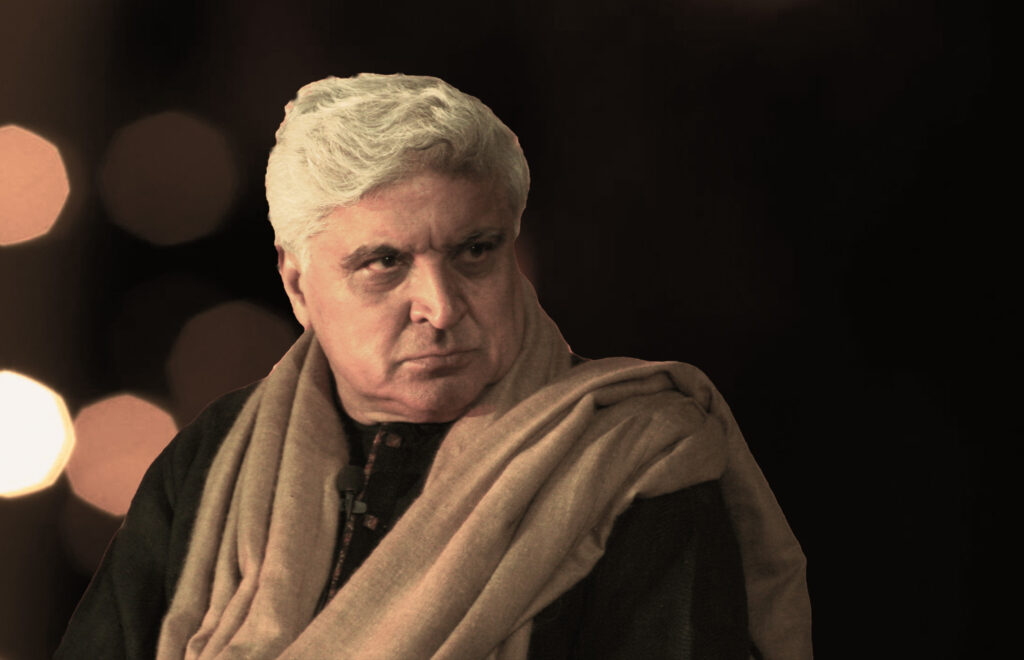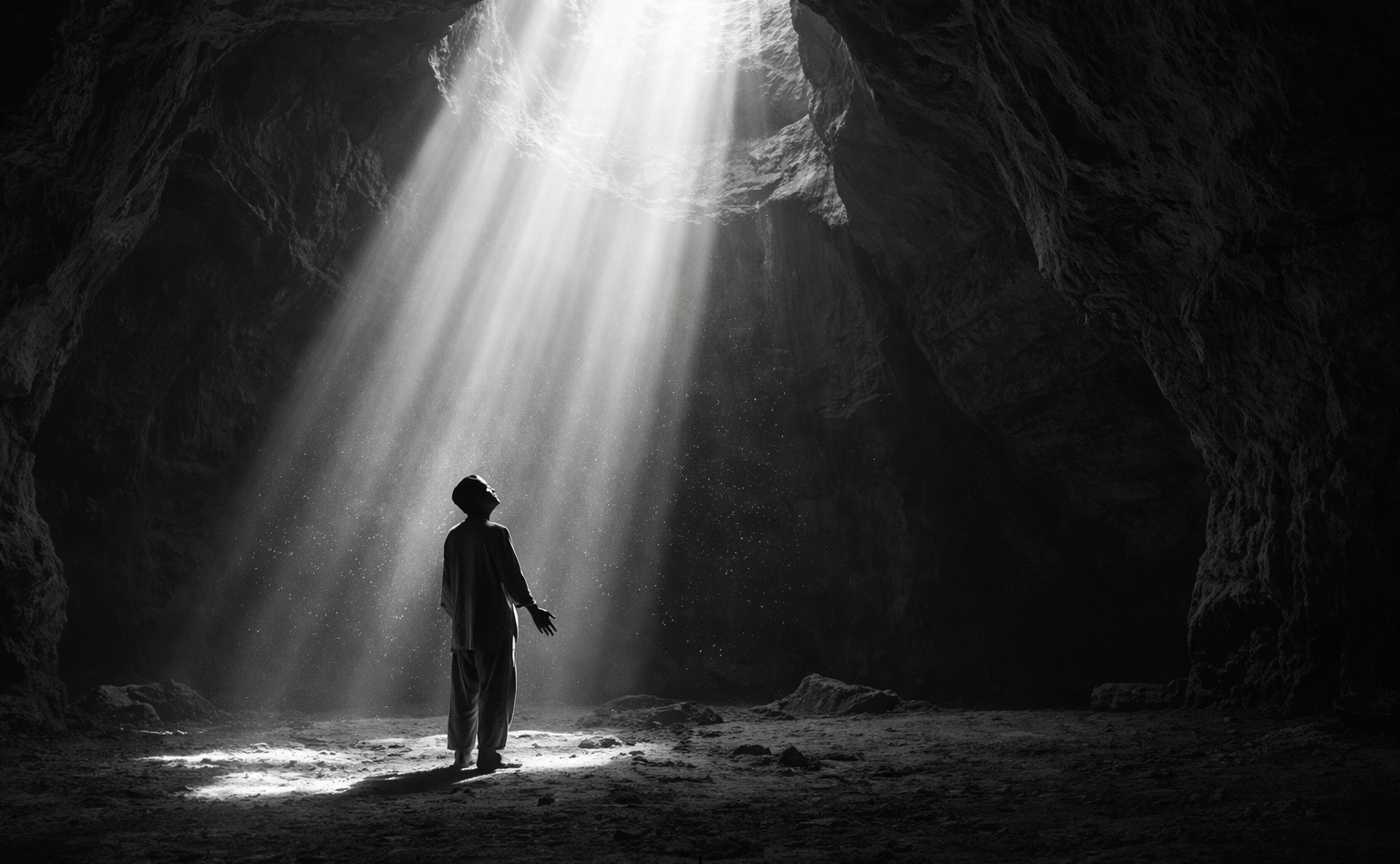HUSAM AHMED SHAFEEQ
A group of researchers, venturing through a forest, stumbled upon a strange arrangement: a stick standing upright at the centre of a circle of stones. Upon closer inspection, they discovered that the setup fulfilled a specific function. As the sun moved, the stick’s shadow shifted across the stones to provide an accurate calculation of time. Despite the absence of any sign of civilisation nearby, the meticulous assembly of the apparatus compelled the researchers to infer that it was purposefully designed.
However, given a number of natural factors that could have possibly caused such an arrangement, some might wonder why the researchers would invoke a designing agent whose existence could not be even remotely found.
After all, is it not unscientific to believe in something without ‘evidence’?
Given his recent remarks, Javed Akhtar would describe these scientists as delusional. Speaking at a recent program,[1] the lyricist equated religious beliefs to having a ‘split personality’, where one chooses to live with the ‘contradiction’ between their beliefs and scientific facts. While he blatantly characterises all religious people as schizophrenic, the flaws in his statements reveal that it is Akhtar himself who suffers from the delusion he seeks to find in others.
Haunted by presuppositions
Akhtar seems obsessed with his own preconceived notions that he confuses subjective statements for rational arguments. When asked why he was an atheist, he smugly replies that it is because he can think, implying that anyone with critical thinking skills should denounce belief in God.
For Akhtar and his atheist peers, such statements may be aimed at reaffirming their dwindling confidence in their own reasoning abilities. Hence, we find no reason to blame them, in spite of the fact that what they say is largely proven to be false by recent research.[2]
However, in order to assert his scientific temper, Akhtar feels compelled to target even the esteemed scientists at ISRO with his presumptuous remarks, alleging them to be suffering from some mental disorder because of their belief in God. This is not to suggest that the introduction of religious practices into scientific institutions is justified; rather, it goes against the principles of secularism. What is implied here is that to outright dismiss someone’s intellectual credibility solely because their worldview does not conform to one’s own is both unreasonable and unscientific.
Undoubtedly, such unabashed disdain towards individuals—with academic and scientific credentials far surpassing his own—can only stem from Akhtar’s dogmatic conviction that his views are absolutely infallible. This clearly reflects a mindset that is too rigid for someone claiming to uphold scientific temper.
A faith that defies logic
Akhtar dismisses the concept of God as unscientific, claiming that it lacks empirical evidence. However, by doing so, he admits his ignorance about a fundamental principle of science that the method of investigation should suit the object in question.
If a lack of empirical evidence is understood to invalidate the existence of a thing, it would imply that a staggeringly large part of the universe does not exist. Science tells us that only a tiny fraction of the universe is theoretically detectable to man, while the unobservable universe is 250 times larger than what can be observed.[3] Similarly, around 95 percent of the universe’s content is imperceptible to even the most advanced instruments invented by man.[4] Given Akhtar’s logic, even to consider the possibility of these ‘dark’ parts of the universe would render a person mentally challenged, regardless of their vast knowledge and expertise in the field.
The very definition of God as the Creator of the universe necessitates Him to be beyond all physical dimensions. This implies that any demand to perceive Him through physical senses must be unscientific. Yet, Akhtar insists on detecting God through empirical means, all the while ignoring His signs manifest in the marvellous workings of each cell in his body and innumerable wonders that surround him in the entire cosmos.
We must confess—it takes a faith that defies science to be an atheist like Akhtar.
Catching them young: Who brainwashes children?
We do not disagree with Akhtar that indoctrination of children can significantly impact their cognitive abilities. What we disagree with, however, is his assumption that introducing religious values to children necessarily amounts to brainwashing them.
Indoctrination involves any effort to impose one’s beliefs upon others in a way that forces them to accept it without question. However, for Akhtar—and likewise for his ideological comrades—it is not how an idea is taught but the idea itself that determines whether it qualifies as indoctrination.
This is the reason that atheists are never accused of brainwashing children, whether it happens in homes where parents inculcate irreligious cultures in their young ones,[5] in schools where scientific facts are twisted to suit a Godless worldview,[6] or even when children are aggressively indoctrinated into atheism at the behest of the state.[7]
However, this is not to deny that some religious parents do seek to impose their beliefs upon children, which is never justified by the true teachings of any religion. Nevertheless, given the intuitive tendency of man, it is atheism that needs to herd children towards disbelief and instil in them a rejection of God, while religious beliefs occur naturally in man.
Research has proved, especially over the last few years, that children are predisposed to believe in God,[8] making man cognitively hard-wired for religious beliefs.[9] That is to say, atheism is an alien ideology injected into children by suppressing their natural tendency to infer the existence of a Creator. Quite hypocritically, such efforts that seek to undermine children’s reasoning faculties are never condemned—but are rather lauded—by atheists.
For example, an article published in the Wall Street Journal commended the research of Boston University psychologist Deborah Kelemen, who discovered a way to instil the Darwinian worldview in children by suppressing their common sense, which might otherwise lead them to invoke an Intelligent Designer behind the universe.[10] Dr Kelemen proposes to teach children the Darwinian mechanism through fictionally extrapolated examples, and suggests to catch them young before the alternative design-theory becomes established in their minds.[11]
If, as Richard Dawkins puts it, “forcing un-evidenced opinions” on children amounts to indoctrination[12], we find no reason why atheism should be exempted from the charge of doing the same.
Political atheism and the anti-science propaganda
In the atheistic account of the history of science, which Akhtar proudly subscribes to, religion is always portrayed as an antagonist that has always disrupted and hindered scientific advancement. Though there is no denying that we find instances throughout history where many scientific discoveries were opposed by religious fanatics, what this narrative deliberately omits is the fact that atheists share an equal—if not greater—blame for obstructing the progress of science.
For instance, when the Big Bang theory was first proposed in the early nineteenth century, many atheist scientists and philosophers rejected it, not on the basis of evidence, but for the reason that the proposition carried ‘unwelcome’ religious implications.[13] Similarly, in Soviet Russia, numerous fields of scientific research were entirely banned for not conforming to the philosophy of dialectical materialism.[14] Many scientists were fired, arrested, sent to camps and even executed for challenging the ideologies of the state.[15]
However, this may not necessarily imply that atheism, as an ideology, should be understood as a rival to science. Similarly, just because some religious people act in regressive ways does not mean that religion as a whole should be held accountable.
At the same time, the contributions of religion to the advancement of human knowledge cannot be overlooked. The intellectual achievements of ancient Greek philosophers, Indian scholars, and scientists from the Islamic Golden Age have been pivotal in laying the foundation of modern science. Disregarding these contributions would be a grave injustice to science itself.
On the wings of religion towards enlightenment
To conclude, it would be unwise to expect Akhtar to adopt a rational approach towards religion, while he does not lend that consideration to science. Hence, there is no reason to be surprised if Akhtar considers religion as a ‘relic of the age of darkness’, except that it highlights his own ignorance of the history of human enlightenment.
It might come as a surprise to Akhtar that many of the greatest achievements that transformed the structure of human civilisation—including formal education systems, libraries, universities, hospitals and many more—were all contributions of religion.[16]
That is to say, most of the philosophical, ethical, cultural and scientific advancements that have shaped our world would have never come to pass, if not for religion. In other words, had religion not played the role it played in spearheading the journey of human advancement, we would still be mired in the darkness of ignorance.
END NOTES
[1] Javed Akhtar Says All Religions Belong in the ‘Dark Ages’: ‘This Is Schizophrenia, People Have Split Personalities’, in The Indian Express, 30 August 2024
[2] It is a stock claim of atheists that critical thinking leads one to reject faith. Though there have been studies suggesting that people with strong analytical abilities tend to be nonbelievers, newer research strongly questions this idea.
Will Gervais, who had initially published results supporting the claim, later revisited his conclusions–and questioned similar studies by others–doubting the idea in light of newer research [Nature, August 2018, Analytical Atheism Revisited]. Similarly, a 2017 study led by Miguel Farias concluded a lack of association between analytical thinking and atheism or agnosticism [Scientific Reports, November 2017, Supernatural Belief Is Not Modulated by Intuitive Thinking Style or Cognitive Inhibition]. Yet another study, again led by Gervais, explored the relationship between cognitive reflection and religious belief, and found that reflective thinking was modestly associated with atheism only in 3 out of 13 countries examined [Judgement and Decision Making, May 2018, Analytic Atheism: A Cross-Culturally Weak and Fickle Phenomenon].
Moreover, there are also findings that a significant proportion of atheists and agnostics, if not all, leave religion for motivational rather than rational reasons [Atheists, Agnostics, and Apostates, Heinz Streib and Constantin Klein, in the book, APA Handbook of Psychology, Religion and Spirituality].
[3] A Map of the Universe, J Richard Gott III et al. (2005), The Astrophysical Journal
[4] Concepts of Dark Energy and Dark Matter: The Understanding and Calculation of ‘Dark Energy and Dark Matter’, Manahel AR Thabet (2014), SSRN Electronic Journal
[5] The Rise of ‘No Religion’ in Britain: The Emergence of a New Cultural Majority, Linda Woodhead (2016), Journal of the British Academy
[6] Haeckel’s Embryos: Fraud Rediscovered, Elizabeth Pennisi (1997), Science
[7] Catholicism and Politics in Communist Societies, Sabrina P Ramet (1990), Duke University Press, pp. 232-233
[8] Do You See What I See? Young Children’s Assumptions About God’s Perceptual Abilities, Rebekah Richert and Justin L Barrett (2005), International Journal for the Psychology of Religion
[9] Religion is Natural, Paul Bloom (2007), Developmental Science
[10] See Jane Evolve: Picture Books Explain Darwin, in The Wall Street Journal, 18 April 2014
[11] Young Children Can Be Taught Basic Natural Selection Using a Picture-Storybook Intervention, Deborah Kelemen et al. (2014), Psychological Science
[12] Don’t Force Your Religious Opinions on Your Children, Richard Dawkins, Foundation for Reason & Science, 19 February 2015
[13] The Cambridge Companion to Science and Religion, Peter Harrison (2010), Cambridge University Press, p. 9
[14] Science in Russia and the Soviet Union: A Short History, Loren R Graham (1993), Cambridge University Press, pp. 121–123
[15] Ibid p. 93
[16] The Role of Religion in Human Development, Uchenna M Ugorie (2017), Unizik Journal of Arts and Humanities













2 Comments
Syed Zafar Ahmad · September 17, 2024 at 4:29 pm
The article is well-presented rationally, providing enough materials for a genuine researcher with an unbiased mind. Commendable indeed!
Roza · November 14, 2025 at 1:16 pm
Neither theist nor atheist, yet i found Javed sir’s points rather rational, thought this article has the strong points to refute but it convinced me he was right